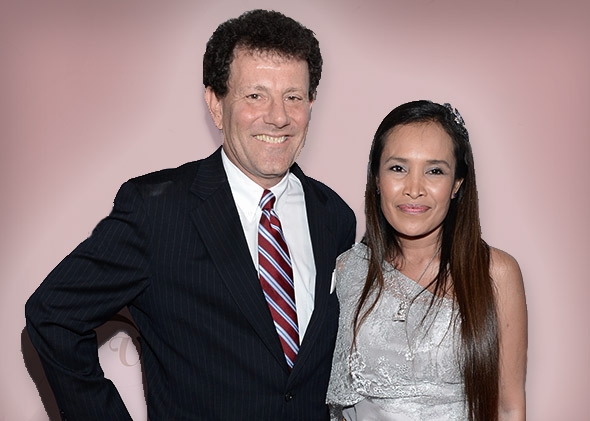Search engines prioritize websites with authoritative backlinks, making this step critical in your SEO strategy. This Specialization will teach you to optimize website content for the best possible search engine ranking. Each course is intended to build on the skills from the previous course, thus we recommend you take the courses in the order they are listed. The Specialization culminates in a hands-on Capstone Project, in which you will apply your skills to a comprehensive SEO consulting task. SEO, or Search Engine Optimization, is a digital marketing strategy aimed at improving your website’s visibility on search engines like Google. By optimizing your site for search engine algorithms, you can attract more organic traffic, enhance user experience, and build credibility.
This usually means better quality leads and, therefore, more engagement and conversions. From small businesses to huge multinational companies, online visibility has a big impact on the success of a business. Since 2010, Specky Geek has mastered website creation and online income. Adapt your SEO strategies based on insights gathered from analytics to achieve continuous improvement. Use robots.txt to guide search engine bots and submit XML sitemaps for efficient crawling and indexing. Participate in relevant online communities to establish your authority and build a community around your brand.
Those keywords will most likely have a lower search volume, but they should be easier to rank. Google presents local search results with a map followed by three organic search results. For example, when users search for “restaurants in Seattle”, the SERP will present three local businesses along with a snippet of their locations in Google Maps as the top results.
Arguably the most impactful way of improving E-E-A-T on your pages is getting more quality links from other websites – backlinks. Understanding SEO’s definition is only the beginning of understanding how it works. First, you need to learn how search engines work, as their advanced algorithms power the search results and determine where websites appear in the search results. But make no mistake about the factors at the bottom of this list. As you can see in the below chart, “Other” factors, like unlinked mentions, social signals, domain history, outbound links, and site structure, carry 1% weight. But given that there are at least 200 Google ranking factors; that’s at least 189 “other” factors that collectively make up that 1%.
Review and update content
If you need to block some files, directories, or even your whole site from Google Search, check out our guide about ways to prevent content from appearing in search results. Google is a fully automated search engine that uses programs called crawlers to explore the web constantly, looking for pages to add to our index. You usually don’t need to do anything except publish your site on the web. In fact, the vast majority of sites listed in our results are found and added automatically as we crawl the web. If you’re hungry for more, we have documentation about how Google discovers, crawls, and serves web pages.
Achieving these goals requires a well-rounded approach that balances both technical optimizations and content strategy. That’s why I’ve started to publish content designed to rank for brand names. And if your site publishes better content than your competitors, there’s a really good chance these peeps will link to you too. Which doubles the number of eyeballs, links and social media shares that you get. This is the dirty little secret that sites use to get LOTS of backlinks on autopilot. For example, when I published this post, I added a table of contents with “jump links” to each tip.
Local content strategy
Major search engines rely on search engine crawlers to index pages, measuring factors like page speed, structure, and content optimization to decide how high to display them in search rankings. Consistent and quality content is the backbone of search engine optimization. A content calendar helps you maintain regular publishing, track your progress, and ensure you’re covering relevant keywords like „seo optimization service“ and „seo strategy.“ SEO careers involve roles such as SEO specialists or managers, focusing on optimizing websites for search engines to improve visibility, traffic, and user experience. In this section we’ll explore some roles in seo and interview experience and some SEO services. Contrary to popular belief, search engine optimization (SEO) is not a one-off process.
- In practice, it means the content is served in a simpler, stripped-down version of your page on smartphones.
- Technical SEO involves improving various technical aspects of your website.
- Every change you make will take some time to be reflected on Google’s end.
- If an agency represents multiple companies targeting the same search content in the same, limited local market, that’s a potential red flag.
- “It is absolutely wild to me that in this debate of GEO/AEO and SEO, everyone is saying that building a brand is not a requisite for SEO, but it is important for GEO/AEO.
Marketing Tactics—
Effective CRO involves analyzing user behavior, conducting A/B tests, and optimizing key elements like landing pages, call-to-action buttons, and overall site navigation. When executed correctly, these data-driven strategies can lead to conversion rate improvements of 15-30%. The process begins with identifying bottlenecks in the conversion funnel and then making targeted adjustments based on quantifiable metrics. Over the past decade, one of the most significant changes in SEO has been the emergence of social media platforms. As a result, a core strategy to organically stimulate link popularity is curating content and building a brand presence on social networks. Our SEO experts meticulously scrutinize your website’s coding and web analytics.
On this page, squarespace.com/blog/on-page-seo indicates that this page lives on the website’s blog and is focused on on-page SEO as a topic. Add any original or stock imagery to your site and review your alt descriptions. Make sure these are clear, descriptive, and incorporate your target keywords where relevant or applicable. Good alt text is brief and avoids details that are irrelevant to the context an image provides.
They improve user experience, fix issues like slow load times, and help you rank higher on search engines. Technical SEO addresses issues like site speed, mobile responsiveness, and security to improve user experience. Search engines use algorithms to rank sites based BHS Links on relevance, quality, and performance, requiring SEO strategies to adapt continually. As a result, SEO has changed from optimizing fixed criteria to working toward optimal user experience. Smart SEOs understand that they have to go beyond backlinks and content. They have to understand the needs of searchers in the context of a keyword.




